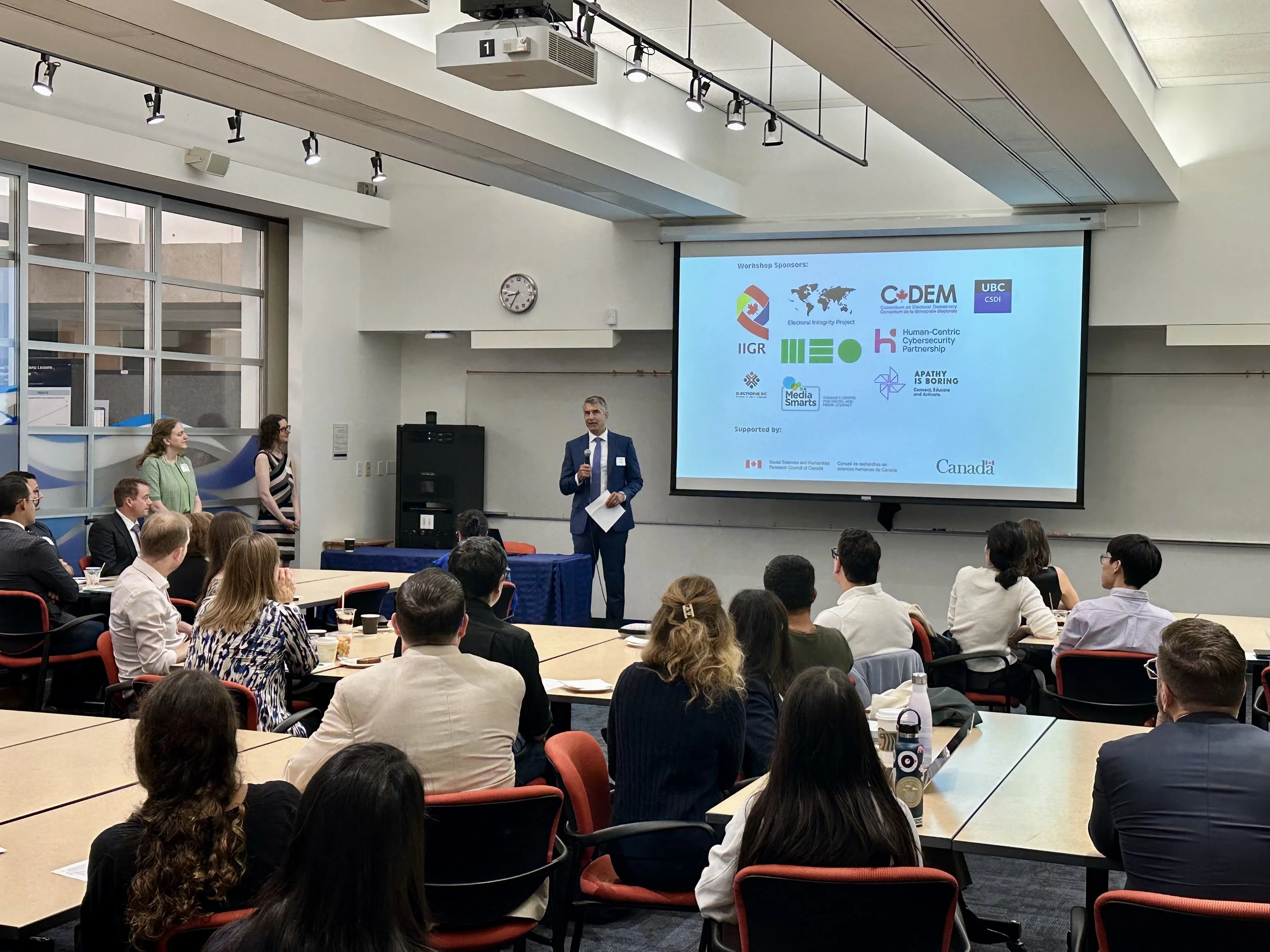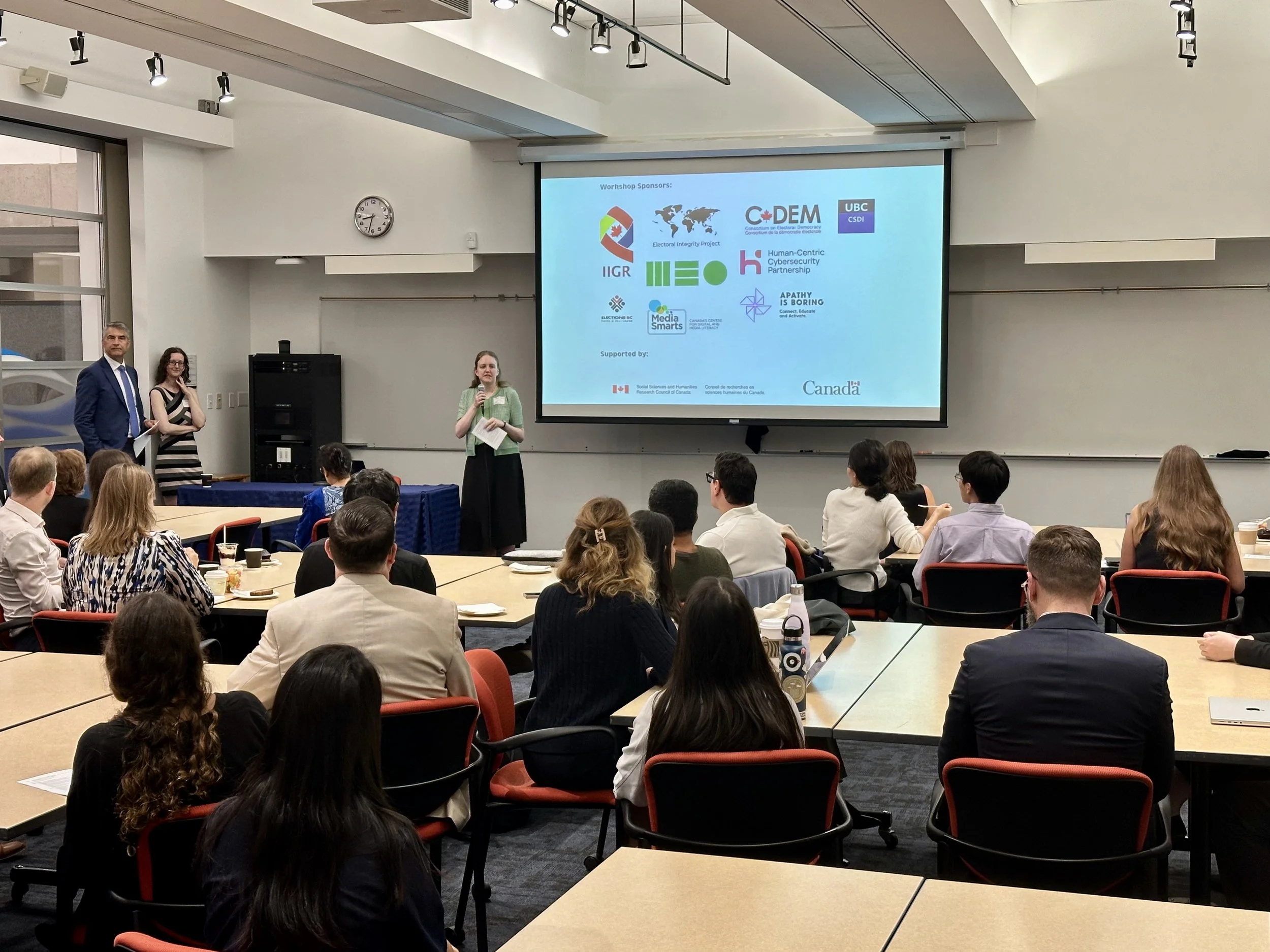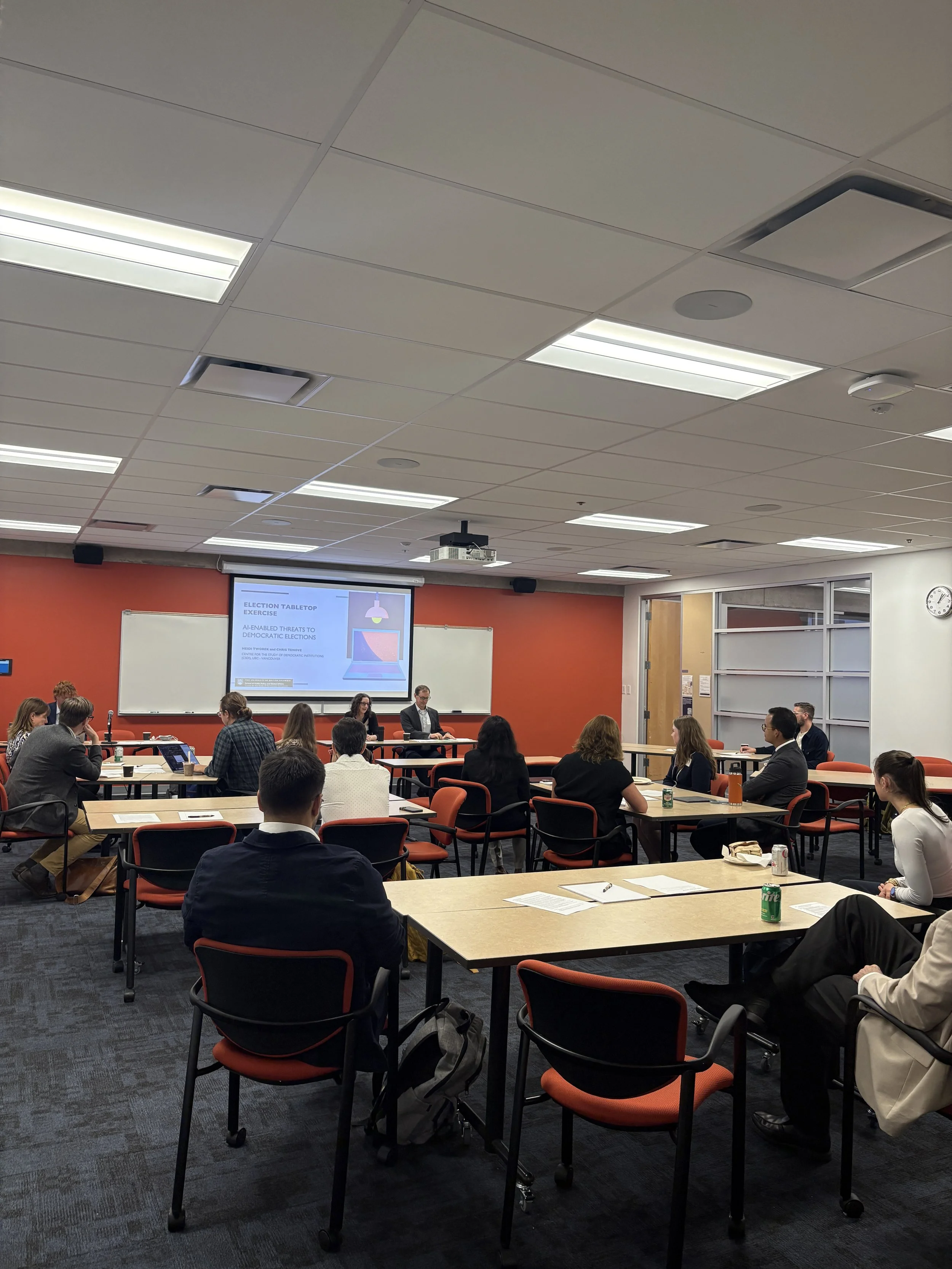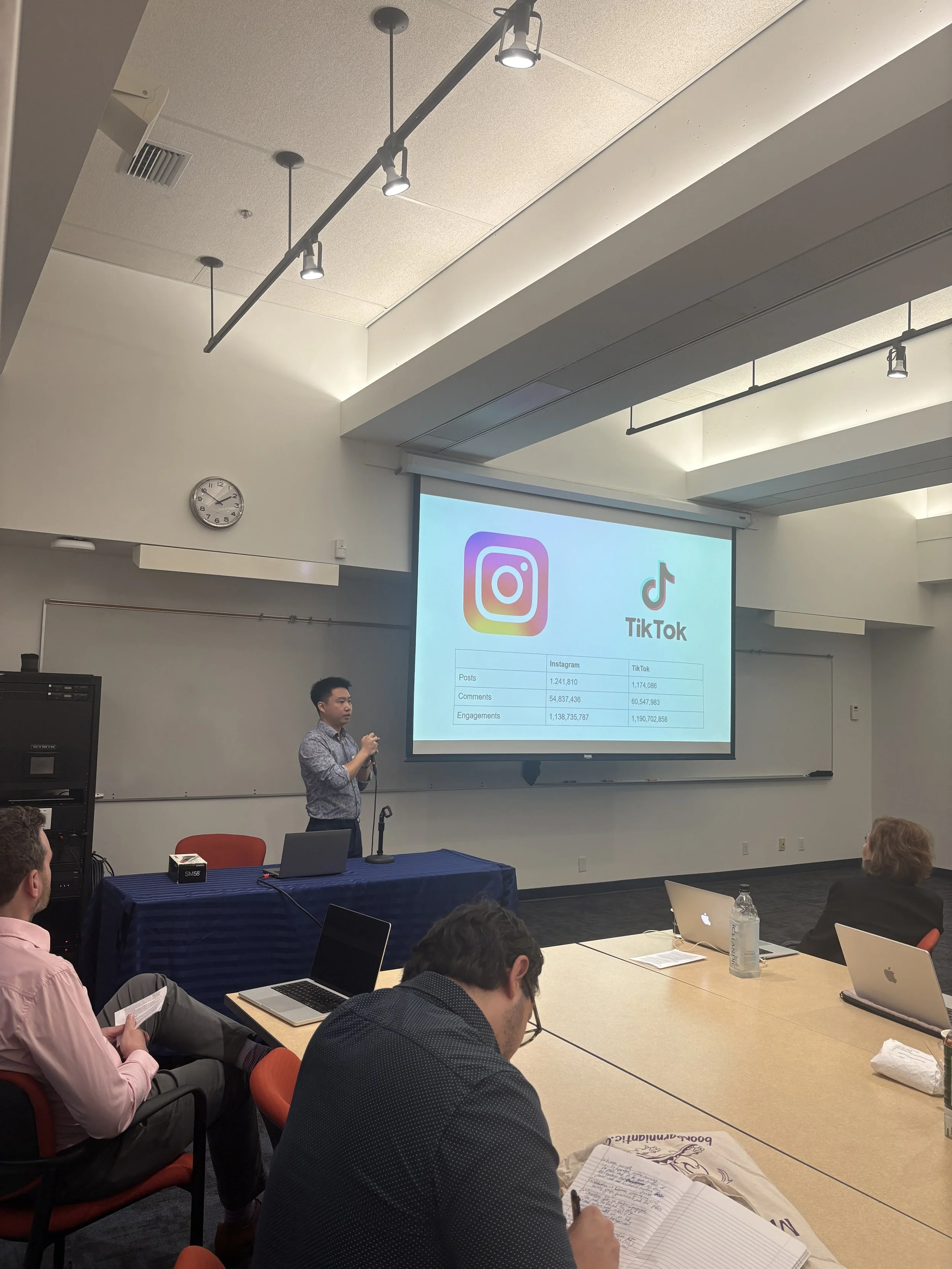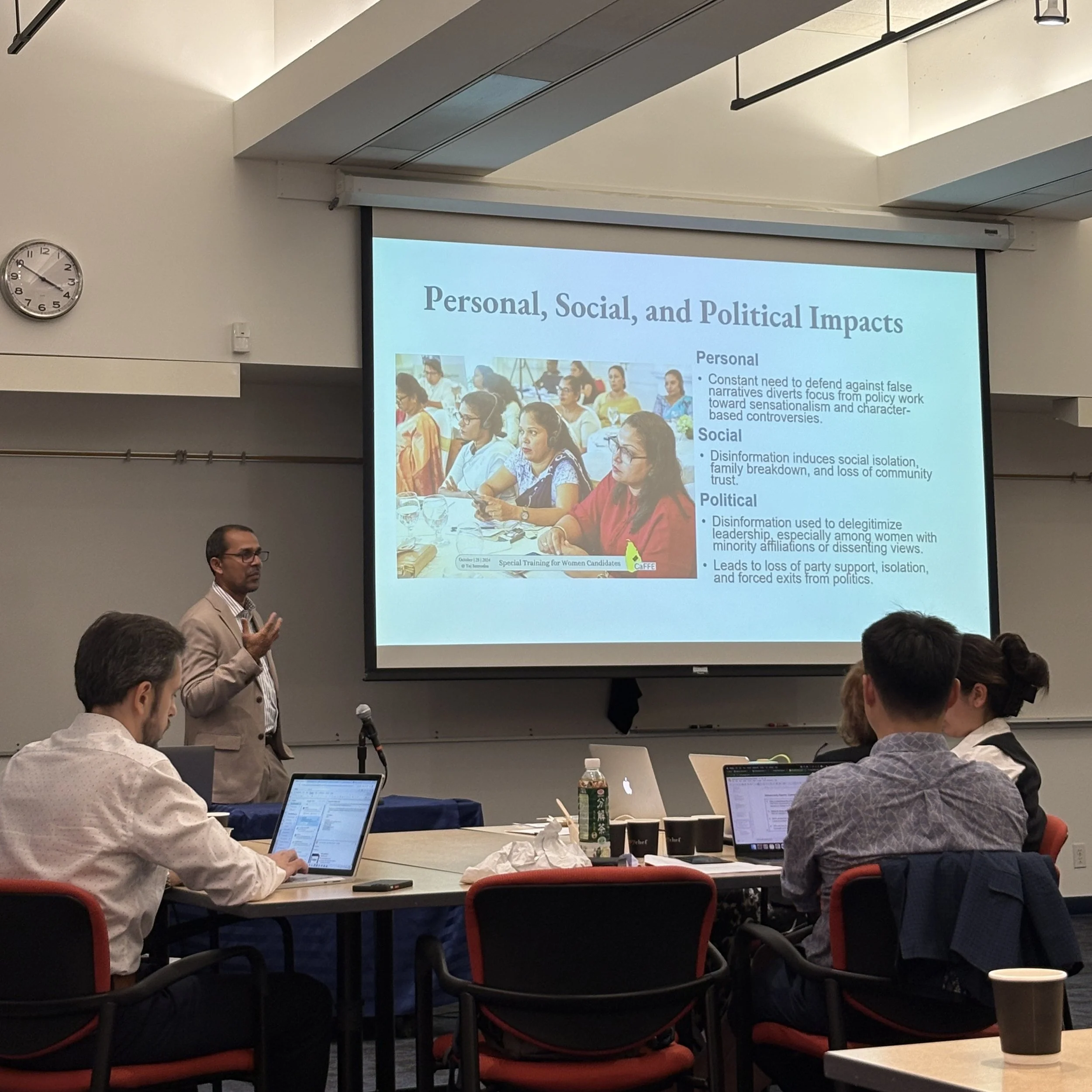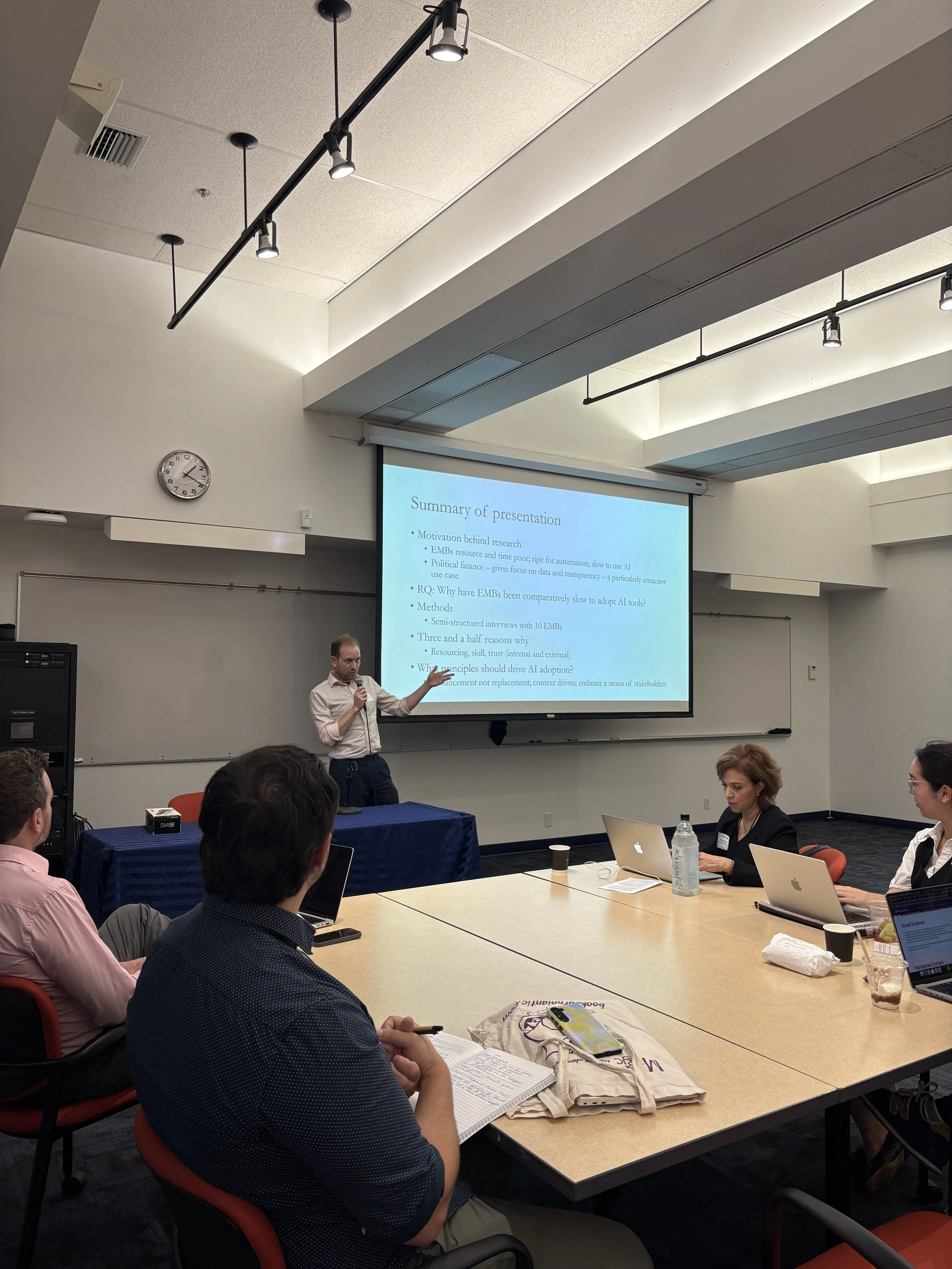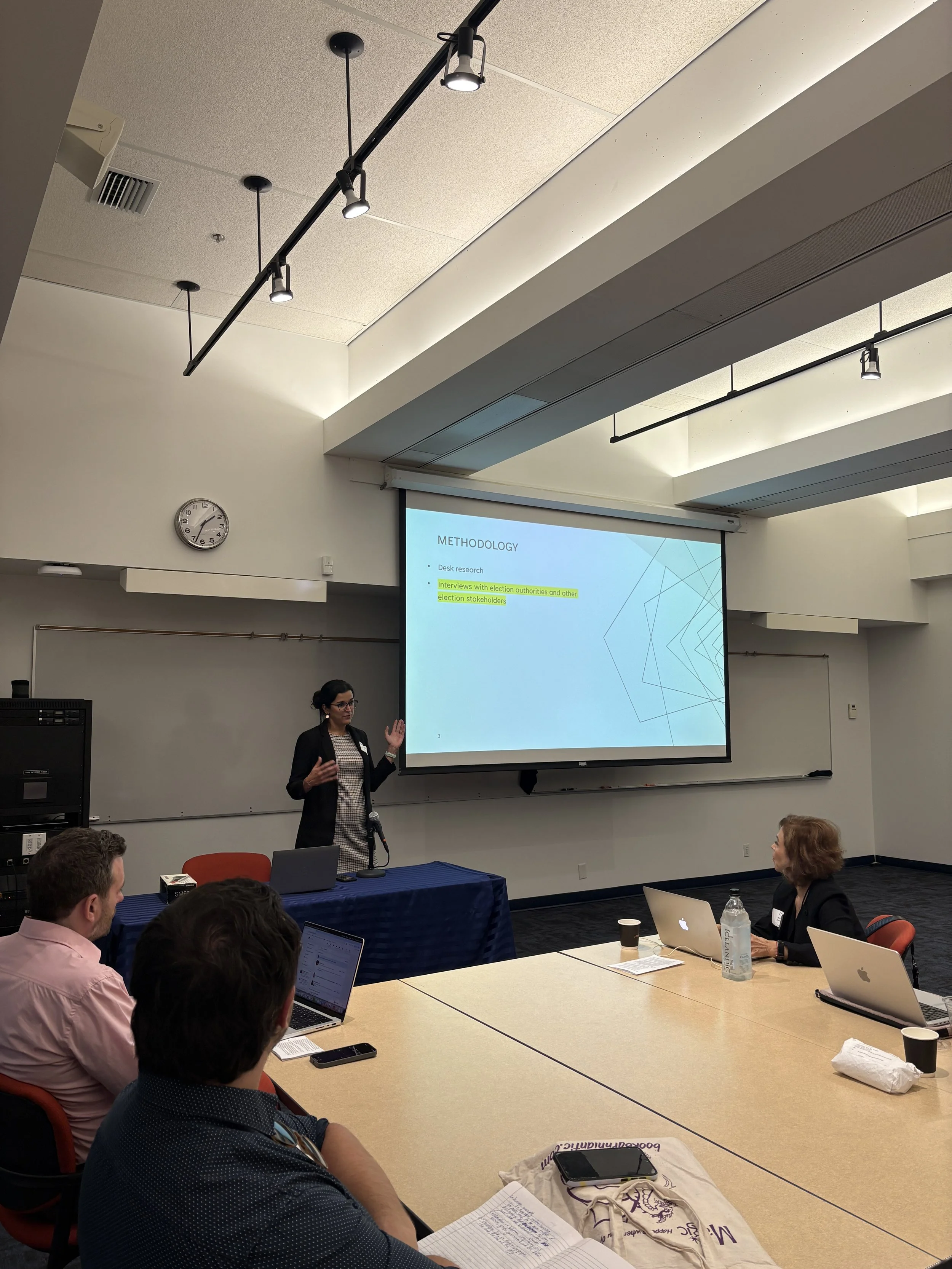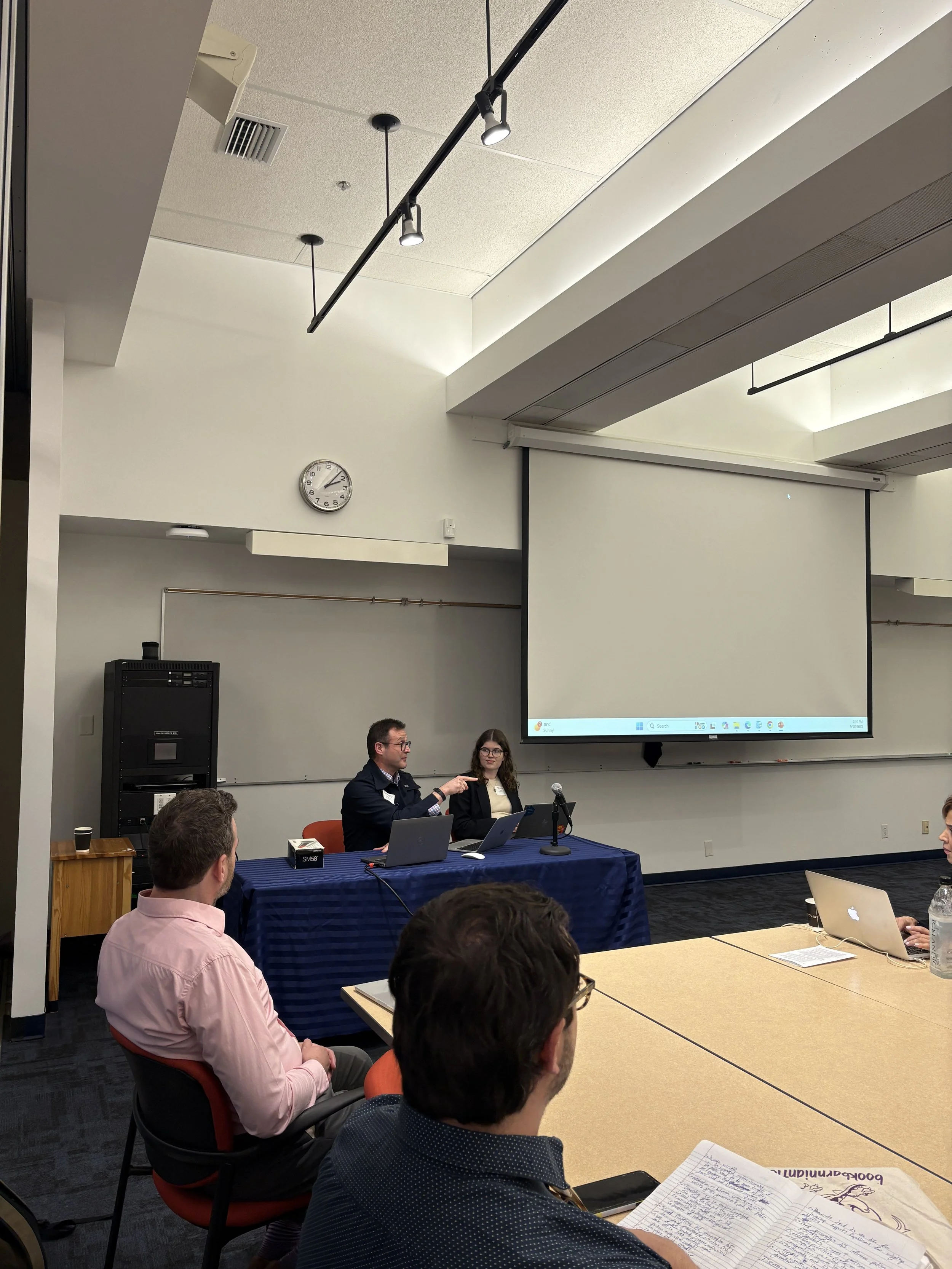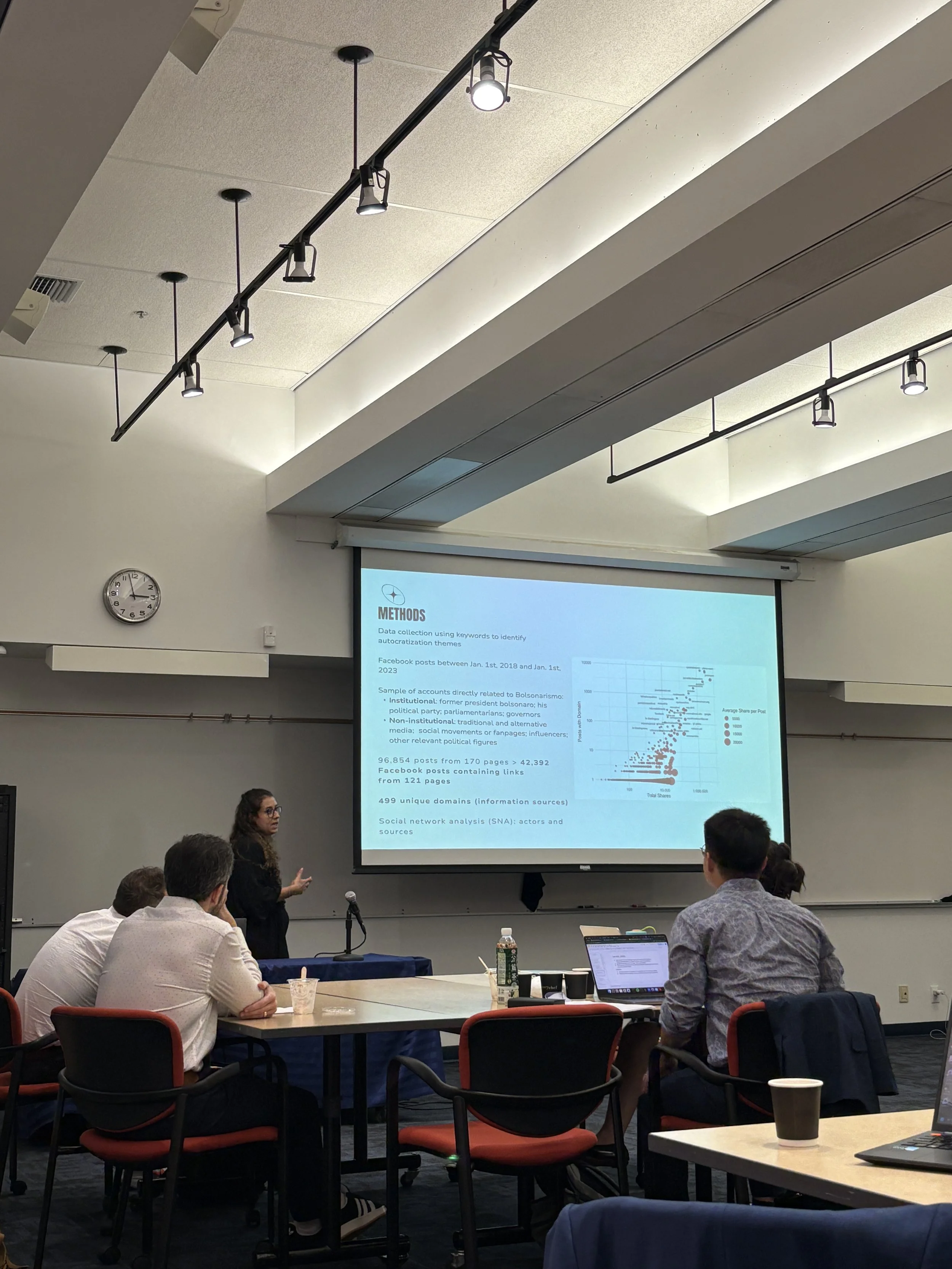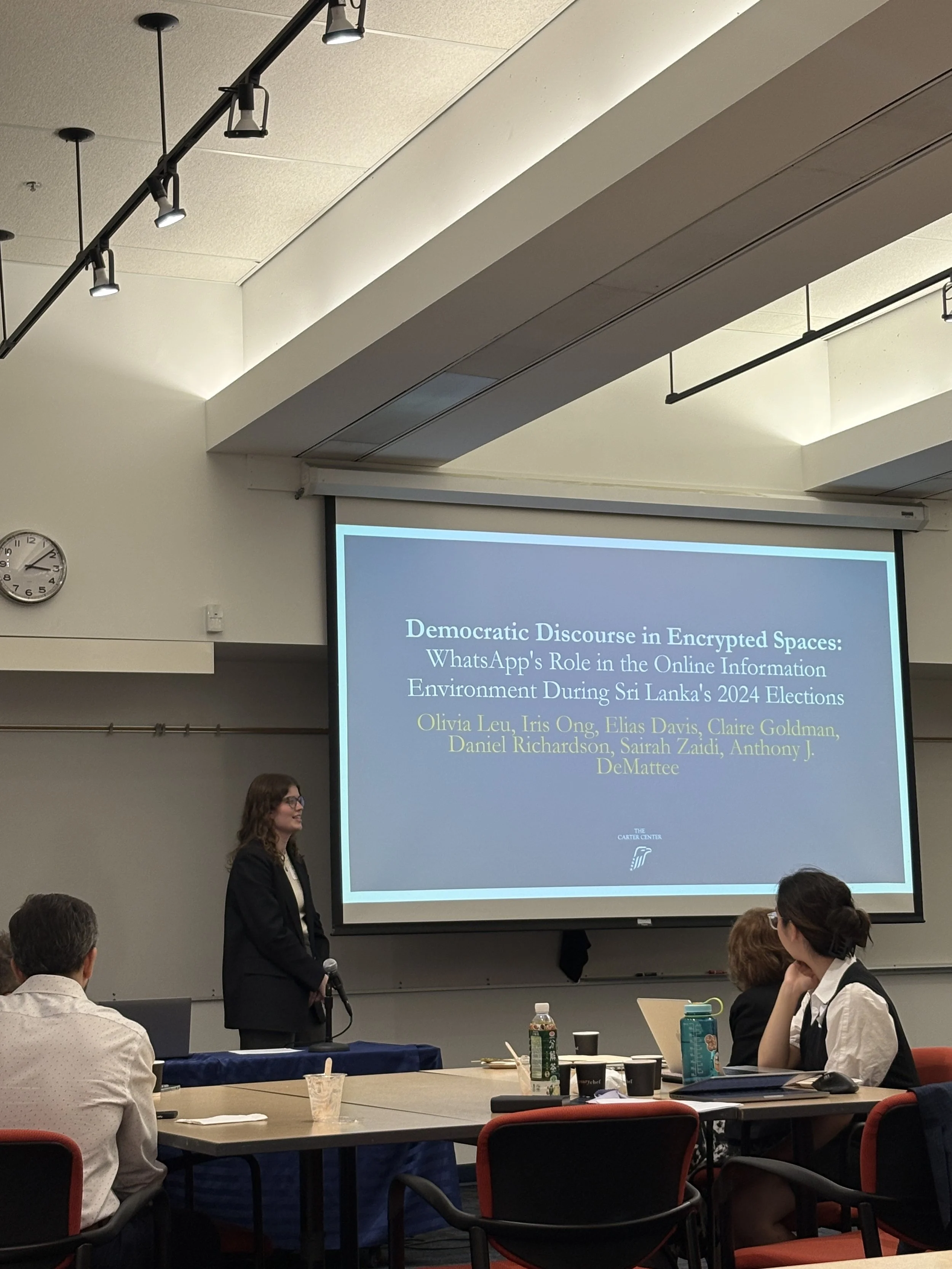On September 10, 2025, scholars, election officials, civil-society organizations, and digital experts gathered at UBC Robson Square in Vancouver for a one-day pre-APSA workshop.
The key question driving the conference was: How have new technologies impacted democratic elections? What should be done to enhance election participation and integrity going forward?
The rapid evolution of technology – from internet voting to artificial intelligence and social media– poses both opportunities and risks for electoral integrity. This workshop aimed to map that landscape, bringing together academic research and practical experience to explore three core concerns:
How election administration can adapt to threats and disruptions while maintaining public trust.
How democratic participation, including voter turnout, civic education and digital literacy, are shaped by technological changes.
How to leverage and regulate new technologies, including artificial intelligence, in a way that strengthens democratic norms rather than undermines them.
The workshop featured several panels that touched on both Canadian and international experiences:
Candidates & Campaigns: discussions on cyber-threats in Canadian elections, the regulation of personal data in Québec, and online fundraising for women in politics.
Electoral Management: examining challenges in maintaining accurate voter registration databases; exploring how partisan control over electoral bodies intersects with the use of new technologies.
Voting Processes and Public Trust: panels explored online and technology-enabled voting and public trust in such systems, with the experience of jurisdictions like British Columbia, the Yukon, and the Northwest Territories.
Artificial Intelligence: examining the implications of generative AI for both domestic election participants and foreign malign actors.
Information Flows: considering how (mis)information is spread on encrypted messaging platforms, the gendered dimensions of disinformation, and how digital platforms shape public discourse.
The workshop also included interactive components (tabletop exercises) gave participants the chance to simulate responses to threats, organized by a team at the Centre for the Study of Democratic Institutions at the University of British Columbia.
A ‘Video Booth’ facilitated by the Human-Centric Cybersecurity Partnership to mobilize the knowledge of the conference presenters via video format. The videos will be made available on their Youtube channel in the coming months (https://www.youtube.com/@HC2P).
Overall, the conference included over 70 participants from around the world, sharing research-based ideas and conversations about how to improve electoral integrity. This included a number of students who presented their work in the Student Poster Forum.
The conference was co-convened by Holly Ann Garnett (RMC/Queen’s/EIP), Nicole Goodman (Brock University), Aengus Bridgeman (McGill University), Chris Tenove (University of British Columbia), Heidi Tworek (University of British Columbia), Mathieu Lavigne (Dartmouth College), Valere Gaspard (University of Ottawa).
It was sponsored and supported by the Institute of Intergovernmental Relations at Queen’s University, the Electoral Integrity Project, the Consortium on Electoral Democracy, the Centre for the Study of Democratic Institutions at the University of British Columbia, Elections British Columbia, the Media Ecosystem Observatory, the Human-Centric Cybersecurity Partnership, Media Smarts, Apathy is Boring, and supported by a Connection Grant from the Social Sciences and Humanities Research Council of Canada.
Select papers will be published in the upcoming State of the Federation volume with the Queen’s Institute for Intergovernmental Relations, and a special issue of a peer-reviewed journal.
For more information: https://www.electoralintegrityproject.com/vancouver-2025-workshop



